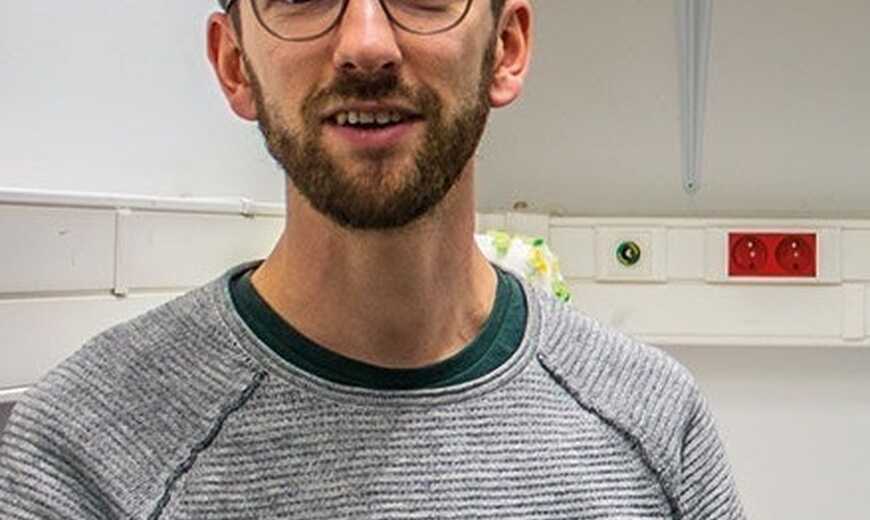Interviewer: Hello Tool2Care, thanks for accepting the interview. Who are you ? What do you do ?
[JB] I am Jonathan Burnay. I completed my PhD in psychology 3 years ago. Today, I work as a researcher at the University of Liège. I am working on Tool2Care, which is a platform that centralizes all the information about assessment tools and their psychometric properties. The objective is to allow clinicians to easily access all the information about assessment tools. After my PhD, I got hired by Sylvie Willems (head of the CPLU lab), who had received funding by the wallonian region to development Tool2Care. The objective of that fund is to help researchers develop a project that has to become an independent society after the funding period. Initially, we got 2 years of funding. We then manage to get a one year extension that allowed us to recently broaden the team and hire two new colleagues.
[LL] I am Lorraine Lieffrig, I am a speech & language therapist (SLT). In addition to my training as a clinician, I have an MSc in management. I am working part-time for Tool2Care, and part-time as an SLT clinician. I also teach to SLT students.
Interviewer: Together, you are in charge of developing Tool2Care as a spin-off. What is it ?
[JB] Tool2Care aims at helping clinicians to use evidence-based practices. This project starts with the realization that clinicians face a number of barriers when developing evidence-based practices. We started by identifying these barriers: lack of time, lack of accessibility, … This made us realize that not all clinicians use evidence-based practices. Tool2Care aims to give access to scientific knowledge to clinicians. It is a database, that aims to centralize information about assessment tools. With Tool2Care, clinicians can then easily go on our website, use the search engine, and find all the assessment tools on a given topics. This way, we hope that clinicians will find it easier to select the appropriate tool for their patient. Whenever possible, we give access to the assessment tool and its norms. This is part of a big development we are launching now.
Interviewer: It sounds like you are the missing link between researchers and clinicians. Does it mean Tool2Care mostly benefit clinicians ? Would researchers also benefit from it ?
[JB] We like to think that we will be the bridge between clinicians and researchers. We realized that it takes on average 10 years for research break-throughs to become accessible to clinicians. We really hope that Tool2Care will help fastening this process, which will also benefit researchers. In the future, we want to offer an online assessment tool, and therefore collect data, that could then be used by the researchers.
Interviewer: How can BAPS members participate to Tool2Care ?
First, we are searching for assessment tools to share on the website. As a database, Tool2Care will be most helpful if it contains many assessment tools. If you are a researcher and would like to share your assessment tool on our platform – in addition to your traditional diffusion platform – please get in touch. Diffusion is done in the spirit of open science: we share your work, but of course you remain its owner !
Second, we will soon launch a cooperative society: we want Tool2Care to be owned by people from the profession. We have several categories of cooperators: clinicians, researchers, professional associations and clinics. Researchers from the BAPS could become cooperators of Tool2Care, take part in the general assembly, and decide of the future of Tool2Care.
Third, join us for the launch evening of Tool2Care, that will take place on 26th April 2022. You will have the opportunity to listen to Jacques Grégoire (UCLouvain), Christelle Maillart (Uliège) and Sylvie Willems (ULiège) about the assessment’s challenges.
Interviewer: Going from the PhD to the SpIN off: any tips ?
[JB] I wanted to stop doing fundamental research. I was finding it very stressful, did not really enjoy the academic publication process anymore and wanted to have a more tangible societal impact. I thought it would be interesting to develop new skills. In addition to clinical and research skills, the spin-off gave me an opportunity to develop management skills. If I had to give a tip, it would be: networking ! I got this job because I was in the corridor, chatting with people. It is not really stressless, but it’s a different kind of stress : I feel like it is a more diversified and stimulating job.
[LL] My advice would be: one day, one job. I work for Tool2Care on Mondays and Tuesdays, the other days are dedicated to other tasks. This helps me stay focused.


